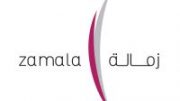Achille Stocchi
He created the biannual Workshop CKM in 2002, co-created the TESHEP annual school in 2007 and co-created the WISHEPP annual school in Palestine wth collaboration with An-Najah National University.
Marie-Hélène Schune
In parallel to her research, she has been active in teaching Particle Physics at the Master-2 level and was responsible of the Master-2 NPAC, a joint program of the Paris universities.
Florent Robinet
After a Ph.D. thesis in hadronic physics (COMPASS experiment at CERN), Florent Robinet joined the Laboratoire de l’Accélérateur Linéaire in Orsay, France (Univ. Paris-Sud CNRS/IN2P3, Université Paris-Saclay) in 2009, first as a post-doc then as a CNRS physicist. Florent Robinet is working on gravitation and cosmology and is an active member of the Virgo collaboration. He is mostly involved in data analysis work, searching for gravitational waves produced by hypothetical objects called cosmic strings. He is also developing new search methods to better separate un-modelled transient signals from noise in the LIGO-Virgo data. Another important aspect of Florent Robinet’s work is about characterizing the noise of the Advanced Virgo detector: he is coordinating the Virgo detector characterization group and developing analysis tools to detect and characterize noise transients in the detector. Since 2017, Florent Robinet joined the SVOM consortium and designs the MXT X-ray telescope which will equipped the SVOM satellite. He is responsible for the development of the on-board scientific software used to locate gamma-ray bursts.
Giacomo Graziani
David Rousseau
Frédéric Machefert
Frédéric Machefert is a researcher in HEP and belogns to LAL LHCB experiments ince years, He is lecturing in many masters and internatioanl school, supervises many thesis and PhD

















